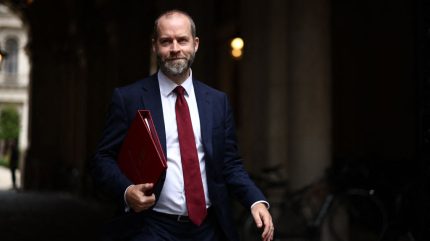
United Kingdom Trade Secretary Jonathan Reynolds is meeting with Saudi Arabian state officials on Monday.
His trip comes ahead of the government’s International Investment Summit in October where Prime Minister Keir Starmer will host 300 industry leaders “to catalyse investment in the UK.”
Reynolds is looking to secure a trade deal with members of the Gulf Cooperation Council in Riyadh. Members of the bloc include Bahrain, Kuwait, Oman, Qatar, Saudi Arabia and the United Arab Emirates (UAE).
He will present the UK as “open for business” and highlight the country’s expertise in tech, life sciences, creative industries, financial services and renewable energy.
“Economic growth is this government’s driving mission and boosting trade and investment with some of the world’s biggest economies is crucial to that,” Reynolds said.
Labour’s plans
The new Labour government inherited a brittle economy from Sunak’s administration.
UK Chancellor of the Exchequer Rachel Reeves is facing pressure to address a £22bn deficit left by the Tories. The pathways to closing that gap are narrow, given manifesto promises of not raising income tax or VAT.
The Resolution Foundation, a think tank focusing on living standards of low to middle income families, suggested in a recent report that Reeves could pass a round of tax hikes without breaking campaign promises. These would target inheritances and capital gains, which would place the costs on those with “the broadest shoulders,” as Labour’s campaign promised.
The Boston Consulting Group also published an analysis of the situation. They suggested that the government could save almost £20bn by 2029 by bringing 450,000 people who have dropped out of the workforce over long-term sickness since the pandemic. The measure could also increase the country’s GDP up to £177bn by 2029. However, it would likely face major pushback given the country’s existing frustrations with the already tightly stretched NHS.
Foreign help
The Gulf countries already have various assets in the UK, although these have often come under scrutiny. Major involvement with national football clubs has fostered accusations of ‘sportswashing.’
Earlier this year, the UK government blocked a bid by an Abu Dhabi-backed group to take over the Telegraph Media Group. The deal faced backlash for its potential impact on free speech, given the UAE’s track record.
Manchester City football club, owned by Abu Dhabi’s Sheikh Mansour bin Zayed Al Nayan, is currently facing a hearing for 115 charges of alleged breaches of the Premier League’s financial rules.
Given this past, major investments from the Gulf are bound to draw attention. However, given the government’s situation, they might feel like they don’t have a choice.



